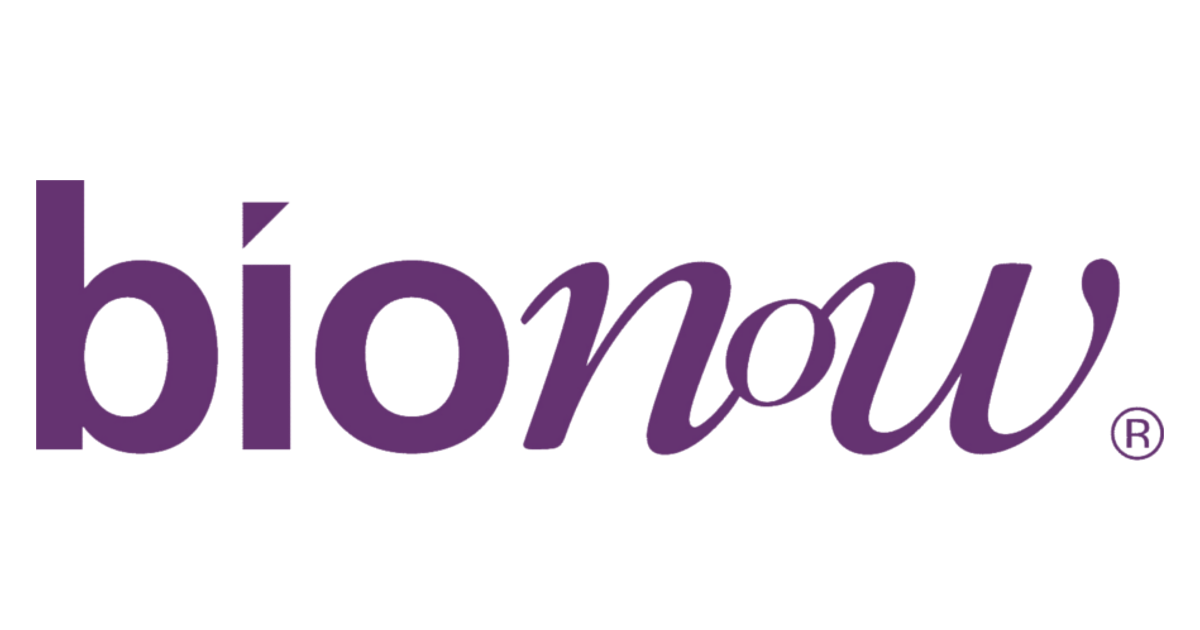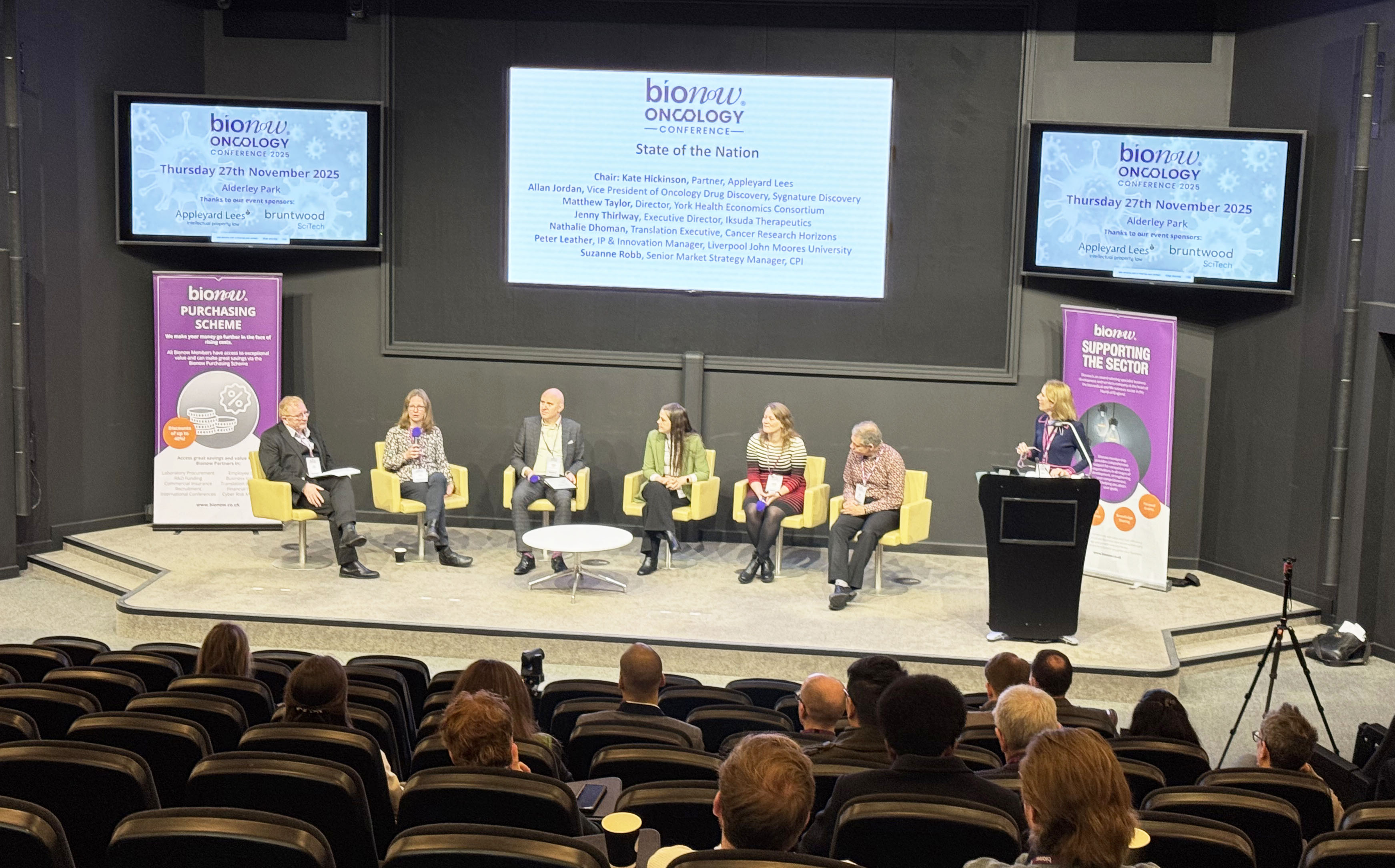Exploring the future of cancer research at the 2025 Bionow Oncology Conference
Hosted at the newly-reopened Apiary Conference Centre at Alderley Park, the Bionow Oncology Conference on 27th November welcomed around 100 delegates, speakers and exhibitors with a deep dive into the latest advancements and challenges in cancer research, fostering collaboration and innovation across the healthcare sector.
The agenda covered a wide range of topics, including research and development, clinical and supply, and manufacturing, alongside patient perspective insights, a state of the nation panel and a poster presentation session for oncology researchers to showcase their work.
Two keynote speakers presented on the day: GSK Barnard Castle’s Director of Sterile Manufacturing Integration and Strategic Network Collaboration, David Jennis, and Director of Target Validation within Discovery Sciences at AstraZeneca, Laura Rosenberg.
David Jennis’s presentation, titled “Two Journeys and One Destination”, outlined GSK’s oncology research and development strategy, positioning oncology as one of the company’s four core therapeutic areas alongside respiratory, immunology and inflammation; HIV; and infectious diseases.
He highlighted the growing intersection between oncology, particularly immuno-oncology and antibody-drug conjugates, and the evolving requirements of sterile product manufacturing. To support this, GSK is investing in purpose-built aseptic facilities designed for specialty products, expanding multi-format capabilities to match development and market needs, adopting robotic filling to reduce operator interaction, integrating isolator-based sterilisation, leveraging single-use technologies for precision and consistency, and implementing advanced digital and automation solutions.
A key message from the session was that successful R&D depends not only on discovering new treatments but also on improving the way those discoveries are made. The emphasis was on combining genetics, genomics and advanced technologies to significantly boost the likelihood of identifying successful medicine targets, with genetically validated targets at least twice as likely to reach the market. With the added power of AI and machine learning, scientists can accelerate and enhance decision-making, enabling the development of the right medicine, with the right modality, for the right patient.
In her keynote speech, “From biology to benefit: Translating target biology into improved outcomes”, Laura Rosenberg explained why many cancer drugs fail in clinical trials, noting that the biggest issue is often a weak understanding of how a drug’s target drives disease. Preclinical models do not always reflect what happens in real patients, and differences between patients can hide whether a treatment is truly working. Strengthening the biological foundations of drug discovery is therefore essential for improving success.
The presentation described how AstraZeneca is using modern genetics tools, including CRISPR, to better understand which genes and pathways matter most in cancer. These large-scale studies help identify more promising drug targets, uncover why some patients respond while others don’t, and reveal opportunities for combination treatments. Examples included finding shared mechanisms between medicines and discovering ways to make tumours more sensitive to radiotherapy.
The growing use of patient-derived tumour organoids – miniature 3D models grown from real patient cancer cells – was also highlighted. These organoids behave much more like actual tumours, offering earlier and more reliable clues about whether a new treatment might work. By combining genetic screening with these advanced models, researchers can make stronger, more confident decisions about which medicines are most likely to benefit the right patients.
A particular highlight of the day was the Patient Perspective session, presented by the CEO of Swallow Head and Neck Cancer Support Group, Chris Curtis, himself a cancer survivor who shared the challenges of his own cancer journey and the importance of lived experience with lived insight in informing cancer research.
The support group has also launched a government petition to fund free dental care for head and neck cancer patients to address the significant oral health challenges that survivors may face, and to improve their overall quality of life.
More information can be found here.
Commenting on the event’s success, Geoff Davison, CEO of Bionow, said: “The energy throughout the day was brilliant, from the keynote talks to the panel discussions and the thought-provoking patient perspective. It was great to see so many people from industry, academia and the clinical community openly sharing ideas and genuinely looking to collaborate. Events like this really highlight how much progress we can make when we bring the right people together.”
The 2025 Oncology Conference was sponsored by Appleyard Lees and Bruntwood SciTech.

